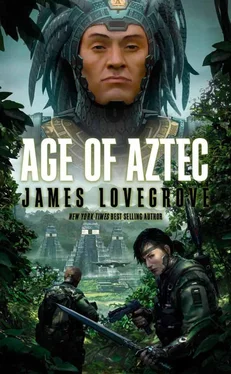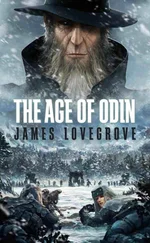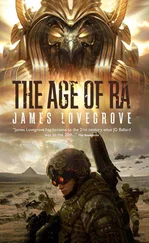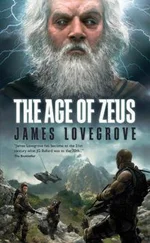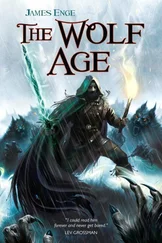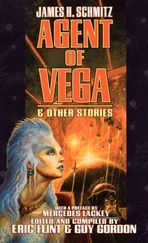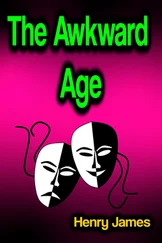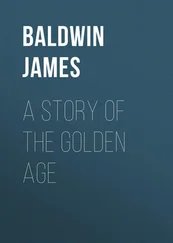James Lovegrove - Age of Aztec
Здесь есть возможность читать онлайн «James Lovegrove - Age of Aztec» весь текст электронной книги совершенно бесплатно (целиком полную версию без сокращений). В некоторых случаях можно слушать аудио, скачать через торрент в формате fb2 и присутствует краткое содержание. Жанр: Альтернативная история, Фэнтези, на английском языке. Описание произведения, (предисловие) а так же отзывы посетителей доступны на портале библиотеки ЛибКат.
- Название:Age of Aztec
- Автор:
- Жанр:
- Год:неизвестен
- ISBN:нет данных
- Рейтинг книги:4 / 5. Голосов: 1
-
Избранное:Добавить в избранное
- Отзывы:
-
Ваша оценка:
- 80
- 1
- 2
- 3
- 4
- 5
Age of Aztec: краткое содержание, описание и аннотация
Предлагаем к чтению аннотацию, описание, краткое содержание или предисловие (зависит от того, что написал сам автор книги «Age of Aztec»). Если вы не нашли необходимую информацию о книге — напишите в комментариях, мы постараемся отыскать её.
Age of Aztec — читать онлайн бесплатно полную книгу (весь текст) целиком
Ниже представлен текст книги, разбитый по страницам. Система сохранения места последней прочитанной страницы, позволяет с удобством читать онлайн бесплатно книгу «Age of Aztec», без необходимости каждый раз заново искать на чём Вы остановились. Поставьте закладку, и сможете в любой момент перейти на страницу, на которой закончили чтение.
Интервал:
Закладка:
Finally hideous Xipe Totec, the Flayed One.
They were followed by Tlaloc, lord of rain and lightning, and a rapid procession of lesser deities, including the thirteen Lords of the Day and the nine Lords of the Night.
As Ometeotl faded into the background, his/her work done, the Four Who Rule Supreme danced around Tlaloc in a circle, each at his respective cardinal compass point. Then began a series of individual dances, accompanied by corps members representing the beings who lived during each of the first four great ages.
Primitive earth dwellers, giants who could uproot whole trees with their bare hands, thundered about in the first age, whose ruler was Tezcatlipoca.
Tezcatlipoca was supplanted violently by Quetzalcoatl. The two gods were born rivals, dark versus light, uncertainty versus stability, cunning versus integrity. Quetzalcoatl’s age was an age of air and wind, and his subjects were monkey men who flew among the treetops like leaves on the breeze.
Tezcatlipoca returned and struck Quetzalcoatl to the ground, usurping him. The third great age was a time of rain, and Tlaloc was set in place as its lord and master by Tezcatlipoca. Quetzalcoatl brought it to a close with a downpour of fire from the sky, which wiped out the global population of winged, turkey-like folk.
The fourth age belonged to Chalchiuhtlicue, jade-skirted goddess of streams and still water. Amphibious fish men thrived in this time, which ended in a massive, all-erasing flood.
The next age began with Quetzalcoatl and Tezcatlipoca setting aside their differences and suing for peace, since up until now their strife had inflicted so much carnage and devastation. The two moved in beautiful balletic unison, mirroring each other’s posture and gestures, to an elegant, waltz-like tune.
To mark their truce they collaborated in the slaughter of the she-beast Tlaltecuhtli. Transforming themselves into giant serpents, they seized the many-mouthed monster and tore her to bits. From her mutilated body a fresh world was formed. Her hair became vegetation. Her eye sockets became caves. Hills and valleys were her nose, mountains her shoulders.
This miraculous if messy metamorphosis was rendered through a variety of forms of stagecraft: props, puppetry, mime, and shifts in the lighting that revealed backdrop images painted on successive layers of scrim. The audience appreciated it immensely, cheering and applauding as the fifth great age — the current age — took shape before their eyes.
But where were the people? Who would inhabit the earth now? Quetzalcoatl descended into the underworld, Mictlan, to retrieve bones of the ancestor races, from which he intended to create a brand new race. Mictlantecuhtli, the Dark One, the god who presided over Mictlan, tried to trick and entrap him, but Quetzalcoatl outsmarted him at every turn. He evaded the Dark One’s devious snares and surfaced victorious with an armful of broken bones. These he handed to the snake goddess Cihuacoatl, who ground them to powder in a bowl. Then every god donated drops of blood, Cihuacoatl mixed it all together, and hey presto, humans appeared.
Again, the audience loved it, including the twenty-strong group of priests who occupied the best seats in the house. While everyone else had to make do with hard, bleacher-like benches, the priests sat in cushioned comfort on a specially erected platform at the centre of the amphitheatre’s arc. Bowls of fresh fruit and maize snacks had been laid on for them, and they were regularly doused with a mist of insect repellent to keep the mosquitoes at bay.
The platform blocked the view of the stage for dozens of people in the rows behind, but nothing could be done about it and nobody complained. The presence of priests at the performance was indisputably an honour and, thanks to the theatre’s publicity department, had been heavily touted in the press and on TV. The show ran nightly, weather permitting, but never until this evening had any of their holinesses attended, and in such numbers too. The dancers and actors were, as a consequence, giving it their all, and the audience members were doing their bit by showing more than usual enthusiasm for the action onstage — even those who couldn’t see much more than the backs of the priests’ heads.
After the interval, the performance switched from dance to drama, in order to tell how the non-aggression pact between Quetzalcoatl and Tezcatlipoca foundered and the god of smoke and mirrors played a vile trick on his brother.
The original text of this play was said to date back to Shakespeare, who composed it towards the end of his life after becoming a secret convert to the Aztec faith. Of course it was never staged in his lifetime, nor during the many calendar rounds that followed, at least not in public. With the Aztec Empire busy storming the gates of Europe and threatening to lay siege to Britain, that would have been tantamount to treason. Only after Britain finally fell to the Empire, just over a hundred solar years ago, did the play emerge into the light of day.
By then, Shakespeare would have been hard pushed to recognise it. His draft — assuming it ever existed — had been handed down through the generations orally. A process of continual revision and updating had taken place with each clandestine rendition. Lines had been added and removed. New scenes had been improvised, old ones discarded.
The basic narrative, however, which every schoolchild learned almost as soon as he or she could talk, stayed the same. The story beats were as familiar to people as the beats of their own hearts.
One day, Tezcatlipoca held up his scrying mirror to Quetzalcoatl, promising to reveal to him his true face.
The mirror falsely showed, not a magnificent god in the prime of his life, but a withered, decayed old man with a long white beard.
“This,” said Tezcatlipoca, “is the truth of what you are — the truth of all flesh.”
Quetzalcoatl was appalled; repelled.
To calm him in his agitation, Tezcatlipoca gave him a goblet of pulque laced with magic mushrooms.
Quetzalcoatl took a sip. Liked it. Drank deep.
He fetched his younger sister, Quetzalpetlatl, and made her drink too.
They lay together, the siblings, inebriated beyond all sense and propriety. They copulated. They slept.
The following morning, Quetzalcoatl, utterly ashamed, took his leave of the world. He could rule it no longer, not after committing the sin of incest. He was not worthy.
The other gods elected to go with him, even deceitful Tezcatlipoca, who was likewise ashamed by his own behaviour.
They left behind them the sum of their knowledge and wisdom — their arts, their crafts, their technology — for humans to use as they saw fit.
And they bestowed the gift of eternal life on one man, the Aztec emperor Moctezuma II, who would forever after be known as the Great Speaker and would rule in the gods’ stead, their voice on earth.
The Great Speaker’s word was law. All who lived in Anahuac obeyed him, and in time all who lived in the rest of the world would too.
His destiny was to extend the realm of the Aztecs beyond the Land Between The Seas until it covered every land and every sea.
It was a destiny he gladly embraced.
The appointment of Moctezuma II as the Great Speaker provided the play’s climax and was the moment everyone looked forward to. Traditionally it had to be a spectacular theatrical coup, as the old, mortal Moctezuma vanished and was replaced by a masked, robed figure who appeared as if from nowhere, conjured into being by the Four Who Rule Supreme. Sometimes there would be thunderflashes, sometimes wreaths of dry ice. Sometimes the Great Speaker would rise from below, sometimes descend from above. It didn’t really matter how he came on, as long he did so in a majestic and magical fashion.
Читать дальшеИнтервал:
Закладка:
Похожие книги на «Age of Aztec»
Представляем Вашему вниманию похожие книги на «Age of Aztec» списком для выбора. Мы отобрали схожую по названию и смыслу литературу в надежде предоставить читателям больше вариантов отыскать новые, интересные, ещё непрочитанные произведения.
Обсуждение, отзывы о книге «Age of Aztec» и просто собственные мнения читателей. Оставьте ваши комментарии, напишите, что Вы думаете о произведении, его смысле или главных героях. Укажите что конкретно понравилось, а что нет, и почему Вы так считаете.
